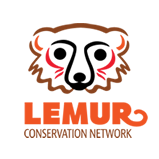What We Do
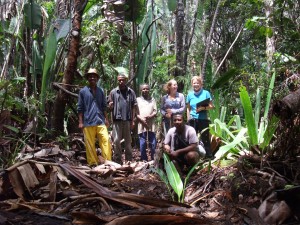
The work we do is focused on conservation research and social development. Our mission is to alleviate poverty and conserve the unique, biologically rich, and greatly endangered forest environments in southeast Madagascar. We help to empower the region’s poorest people to establish sustainable livelihoods for themselves and improve their well being.
SEED Madagascar’s Conservation Program implements a broad range of lemur projects that conserve the lemurs of Sainte Luce and ensure their long-term survival within their natural habitat.
How We Protect Lemurs And Other Wildlife
Conducting Research to Preserve Sainte Luce Habitat
The littoral forests of Sainte Luce have been declared a conservation priority within a globally recognized biodiversity hotspot, making conservation here essential. Additionally, this habitat has been earmarked for future mining projects which may threaten the lemur populations, as well as other unique wildlife in the region. SEED Madagascar has been researching the lemurs, bats, amphibians and reptiles, as well as plants, restricted to the littoral forest fragments of Sainte Luce.
Our research estimates the population densities of the impacted species and calculates whether remaining habitats will be enough to support these populations. SEED Madagascar publishes research which directly contributes to wildlife conservation projects in the area.
Nocturnal Lemur Research
Our current focus is monitoring the population size and distribution of the three nocturnal lemur species found in Sainte Luce, Microcebus tanosi (Anosy mouse lemur), Cheirogaleus medius (Fat-tailed dwarf lemur) and Avahi meridionalis (Southern woolly lemur). All three species are now classified as Endangered by the IUCN, and as such more research is urgently needed. The SEED Conservation Research Programme is also working with the Project Ala team which has been set up to establish biodiversity corridors between the forest fragments of Sainte Luce, and which will help to protect these species from further decline.
What Lemur Species We Protect
SEED Madagascar’s research programs protect several lemur species found in the region:
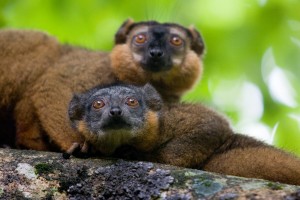
- Collared brown lemur (Eulemur collaris)
- Anosy mouse lemur (Microcebus tanosi)
- Fat-tailed Dwarf Lemur (Cheirogaleus medius)
- Southern woolly lemur (Avahi meridionalis)
How We Support Local Communities
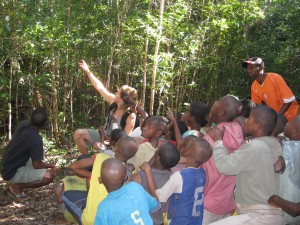
The SEED Madagascar Conservation Programme has had a permanent base in the community of Sainte Luce (southeast Madagascar) for more than five years. Through this relationship, SEED Madagascar draws on the knowledge of the community and uses guides trained by the forest management committee. In return, the programme provides training in ecology, conservation and the English language for local Malagasy, and runs a highly successful Saturday conservation club. Additionally, this volunteer program brings tourists (and the associated income and awareness) to the village.
Sustainable Livelihoods
We believe that conservation and supporting the local livelihoods of the communities of southeast Madagascar must go hand in hand. Many people in this region depend on natural resources from the forests and seas. We are working to support the transition to sustainable income sources through the following projects:
Project Mahampy
Helps women who work as traditional weavers to increase their income, and contributes scientific studies to enable the management of healthy Mahampy reedbeds for long term income generation.
Stitch Sainte Luce
Helps women who work in embroidery to run a sustainable co-operative, providing business training, and marketing and international sales support.
Oratsimba
Works to strengthen community-based, sustainable fisheries management and the economic resilience of fishing households in southeast Madagascar.
Renitantely
Works to improve the sustainability and viability of beekeeping as a livelihood amongst rural communities in the Anosy region.
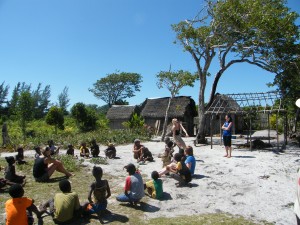
Community Health
For over 15 years, SEED Madagascar has been working the improve public health in southeast Madagascar. Our current projects aim to:
- Improve sanitation in Sainte Luce, including the WASH programs in local schools
- Increase maternal and child health
- Support water security and livelihoods programs
- Increase awareness of sexual health and access to family planning materials
Education
In the Anosy region half of all children have never been to primary school, due to a lack of educational infrastructure and teachers. Our education projects help to tackle the shortfall by building new schools, repairing existing buildings, providing furniture and facilities to schools which don’t have enough, and supporting teachers to teach.
